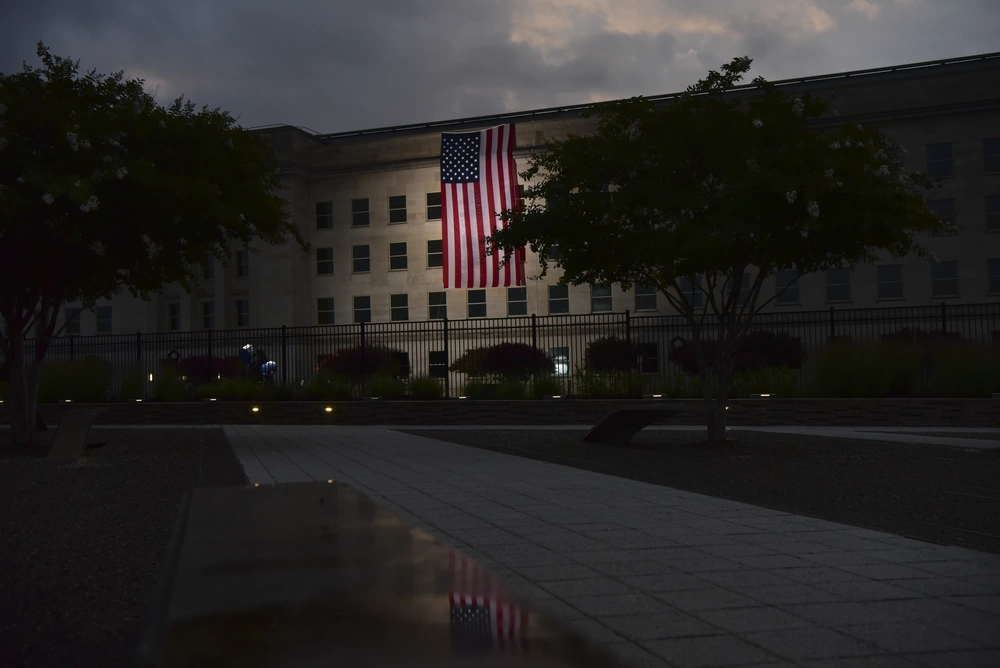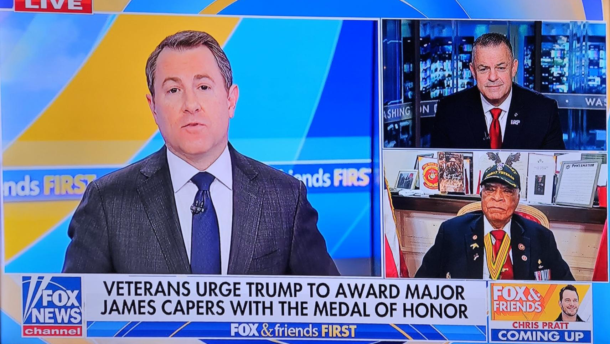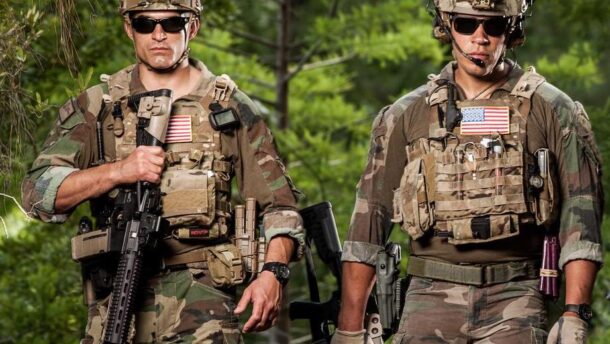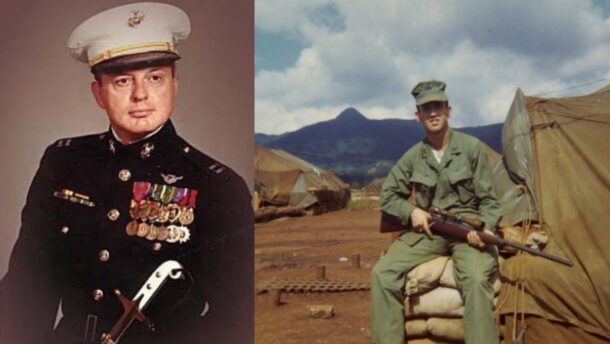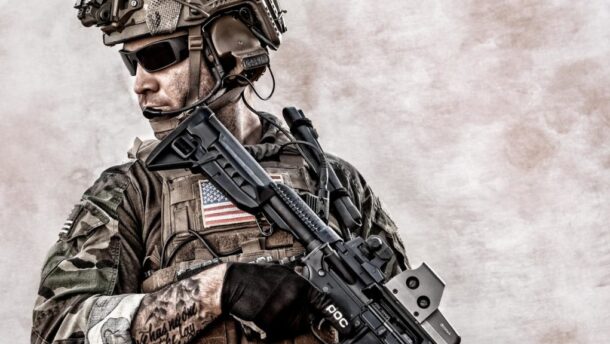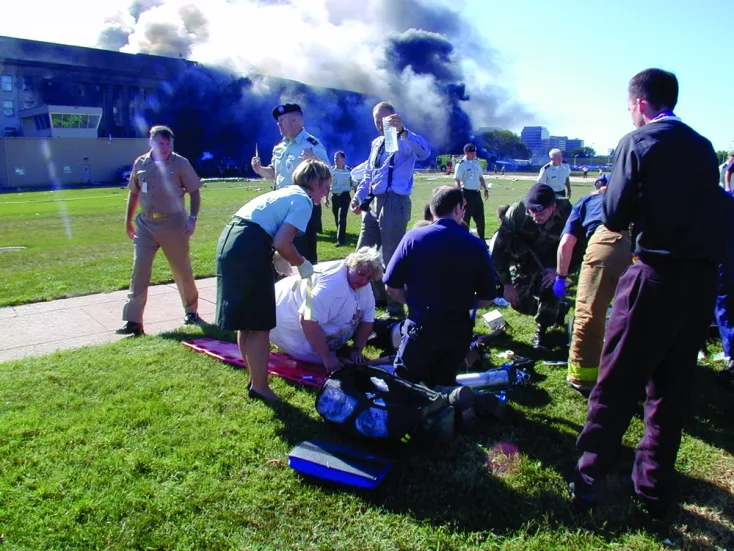
Written by Cmdr. Randy Lescault, U. S. Navy (Ret.)
LOUISVILLE, Ky.—It was a beautiful late summer day in Arlington, Virginia on the bank of the Potomac River on that Tuesday, September 11, 2001. The sky was clear. The blistering heat and humidity had departed the area. It almost felt as if a huge broom had swept across the area, cleansing the air of soot, pollution and pollen.
I was serving as a Navy Reserve officer assigned as the Program Objective Memorandum (POM) Editor and Publisher in OPNAV’s Programming Division N80, (the Bullpen in Navy parlance) at the Pentagon, Room 4D683.
At the time, I was personally burdened by the fact that my latest set of Reserve orders were about to expire. As most military folks know, being on active duty as a reservist is a lot like being a contractor. You are brought on board for a set amount of time. They Navy Reserve was working with my N-80 colleagues to get another set of orders to take me forward through the end of the calendar year. I was quick to answer every phone call or check each incoming email to confirm whether my orders had been approved, or whether I needed to prepare to pack up and head back to Indiana.
With no answer from the Navy, I was concerned by the uncertainty of my situation. I consider myself a devout Christian, having given my life to Jesus as a teenager, and followed Him as closely as I could. I made this issue a matter of prayer before I slept each night, but, beginning on Thursday night, September 6th, and the nights following, I perceived that it was perhaps something more.
Each of those nights after laying down, I was seized by a terrible weight on my being. A sensation like a bird flapping over my face and chest, depriving me of rest, visited me. The feeling left only when I rose to walk and pray aloud or quote Scriptures (quietly, so as not to disturb my roommates) for hours, before finally falling into an exhausted sleep.
This same routine interrupted my sleep until Monday night, 10 September. That night I slept like a baby, undisturbed.
At my office in the Pentagon the next morning, it was the usual busy routine of checking messages and correspondence and listening to my colleagues as they chatted back and forth. We were arranged in a double row of cubicles, with one side of the cubicles with their back to the outer wall, where the plate glass windows behind us had just recently been replaced with newer blast-proof materials. We had moved into 4D683 recently, occupying the newly remodeled section, relocating from an older section of the Pentagon.
I could hear my colleagues talking about the news when I heard someone say, “Hey, a report here says a plane flew into one if the Twin Towers in New York City!” It was quiet for a moment as everyone logged onto the news to confirm the story. “Must have been bad weather, and maybe a Piper Club lost their way,” one said. Another offered, “Nope, that hole at the impact site doesn’t look like a Piper Cub, and the weather is as clear as a bell”.
Moments later, at 9:03 a.m., we understood what was happening.
Recorded live, a Boeing 767 passenger airliner crashed into the South Tower of the World Trade Center. Silence descended upon the Bullpen, as we all tried to make sense of this terrible, deliberate attack.
At that moment, I was impressed in my spirit that the Pentagon would be the next target. I said a quick prayer and sent an email to my wife to alert her as to what was going on. I also called and left a message on our answering machine, letting her know my concerns, and sending her and the children my love. A calm descended upon me, and I went back to my work.
Little did I know that she was unaware of the situation but was at home praying for me at that very moment.
At 9:45 a.m., we experienced the odd sensation of a pressure drop in our office area. It lasted only a split second before we heard a muffled explosion. The blast windows actually bulged inwardly for a moment, knocking against the blinds. The lights went out, and some of the overhead tiles popped out. I jumped from my seat and looked out the window, where I could see a dark cloud of smoke coming from the outer ring of the Pentagon, and fine debris falling into the courtyard between our Ring D, and Ring E. I immediately yelled “We’ve been hit!”.
An automated announcement instructed us to evacuate immediately. The smell of burning jet fuel (which I was very familiar with, having lived on several air bases, and served on an amphibious assault ship that carried Harriers jets) began to infiltrate the space.
Everyone began moving quietly to the outside corridor, and from there to the Pentagon Courtyard, a five-acre, open air space in the center of the Pentagon nicknamed ‘Ground Zero’ (because everyone assumed the Soviets used it as their aim point for a nuclear strike). There was no panic that I could detect, only people checking on each other, and trying to make their way to safety.
When I got to the corridor, I hesitated. I knew that somewhere below me was a burning, exploding aircraft. I was seized momentarily by a desire to run. But across the corridor was a lone Marine major. He was kneeling on one knee, and, looking toward the outer ring of the Pentagon (where smoke was beginning to pour out like a chimney) he was yelling over and over ‘Follow my voice’. Encouraged by this sight, I decided to stay and help. We took turns shouting out, until the smoke was so thick we were lying on our bellies. No one showed up, so we looked at each other and nodded, and made our way to the Courtyard.
The Courtyard was an incredible sight. Over a thousand military, civilian and contractor personnel stood or sat silently, their eyes trained toward the sky.
Again, I was struck by the calm and the orderliness of it all. Finally, a civil defense officer appeared with a bullhorn, asking everyone to move out into the South parking lot. I thought I would join the crowd, but I noticed the Pentagon health clinic professionals setting up a triage area there in the Courtyard. Since I had received first aid training many times over the years, I thought I would remain for a while to assist as needed.
I made my way into the first floor entrance on the west side of the Pentagon, where the aircraft had obviously impacted the building. Smoke was escaping from the upper floors through broken windows. The first floor was filled with a smoky haze, but you could see figures moving in and out of the corridors. I saw the same Marine major standing there. He had been asked to prevent folks from probing deeper into the burning belly of the Pentagon, since most of us didn’t have any fire protection, breathing gear or helmets, but his efforts were fruitless. People wanted to help and were headed in anyway. He asked me to take his place on guard, but I couldn’t stop anyone trying to help, either.
At that moment, someone came out of the smoke and said they badly needed fire extinguishers. I stepped out into the Courtyard and yelled for everyone’s attention. I asked them to go to the other parts of the Pentagon not affected by the impact or fire and grab whatever fire extinguishers they could find and bring them to the first floor entrance. Within minutes, we had quite a pile, ready for rescuer’s use.
I decided to probe a little deeper into the Pentagon myself to see if I might find someone in need. Just fifty feet or so down the smoky corridor, I could see a figure walking toward me. As I approached him, I could see he had been badly burned and was in shock. There was nothing left of his dress shirt, and about all that remained of his undershirt was the collar around his neck. His skin hung down in sheets from his body, resembling wet newspaper. I tried to find a place to put my hand on him so I could guide him out. I made the mistake of placing my hand on his burned back, and he moaned loudly. I finally figured out that I could get up under his arm. A Navy colleague of mine got him on the other side, and we led him to the Courtyard, where we called out for a medic.
I turned to go back and saw a few men bringing out a Navy petty officer, an African American lady in her summer white uniform. She was clearly in shock. When she reached the clean air of the Courtyard, she rolled her eyes to the clear sky above, slightly smiled in relief, and then collapsed in a heap.
In the Pentagon corridor again, I saw another figure in the smoke, and walked toward him. It was an Army enlisted man. He was as red as a boiled lobster, and soaking wet from the sprinklers. His glasses were fogged up, and he kept asking me over and over if he was burned bad. I assured him he had what looked like first degree burns, and that he would be okay. I got him to the aid station, where he was collected by the medics.
Finally, a call rang out for stretcher bears from inside the Pentagon. An Army officer, Navy officer and I grabbed the only available stretcher, a backboard, and we raced into the smoky darkness.
By the light filtering through windows and broken doors in the corridor, we could see the floor littered with pieces of mortar and stone, unidentified objects, and what looked like body parts. Figures moved in and out of the smoke with flashlights. We entered the courtyard between Ring C and B. We put down the backboard on a metal desk sitting on the ground. The courtyard was filled with about a foot of water from the broken fire mains. The water was filled with small, sticky pieces—it reminded me of the remains you throw into the lake after cleaning fish. I had a strange feeling as we walked around in it, trying to find a survivor.
Fire was coming from a large hole that had been punched through the exterior wall of Ring C, probably by what looked like the remains of an aircraft wheel strut. Smoke poured out of the upper floors. Suddenly, there was an explosion, and a few large pieces of the Pentagon façade came crashing down, along with an intact blast window. An Arlington Fire Department officer approached us and asked us to leave immediately, due to the danger and our lack of protective gear. Reluctantly, we departed, finding out way out through one of the many service tunnels that honeycomb the Pentagon.
There are many other things I could share personally about that day: the long delay trying to get through to my wife and family with the news I was okay; the emotional toll; trying to find my way back to my rented room some twelve miles away with the highways and all public transportation shut down; the shock of discovering the Twin Towers had collapsed; the rumors; and the reunion with my colleagues and friends.
But my final thought is God’s keeping power in the midst of the worst terror attack on American soil in our history, for which I am continually grateful. And I mourn the loss of my Pentagon colleagues, some who I knew, and many who I did not know. May they always be remembered and honored. I know I will never forget.
